Abstract
Matching of Medicaid and health department patients' files to birth certificates was used as a means of evaluating the effect of prenatal care given by public health departments on the birth weights of babies of women in Medicaid. Three years of live birth data from North Carolina and 2 years of birth data from Kentucky were used in the analysis. After controlling for other low birth weight risk factors (including the quantity of prenatal care) with logistic regression, women in Medicaid who received prenatal care outside public health departments were found to be substantially more likely than those who received care at health departments to have low weight infants. This association was especially strong for births under 1,500 grams. The authors suggest that the comprehensive prenatal care that is provided by the public health departments, which includes various nonmedical support services, may be responsible for this difference. These findings have important implications for proposed expansions of the Medicaid Program to cover more pregnant women in poverty.
Full text
PDF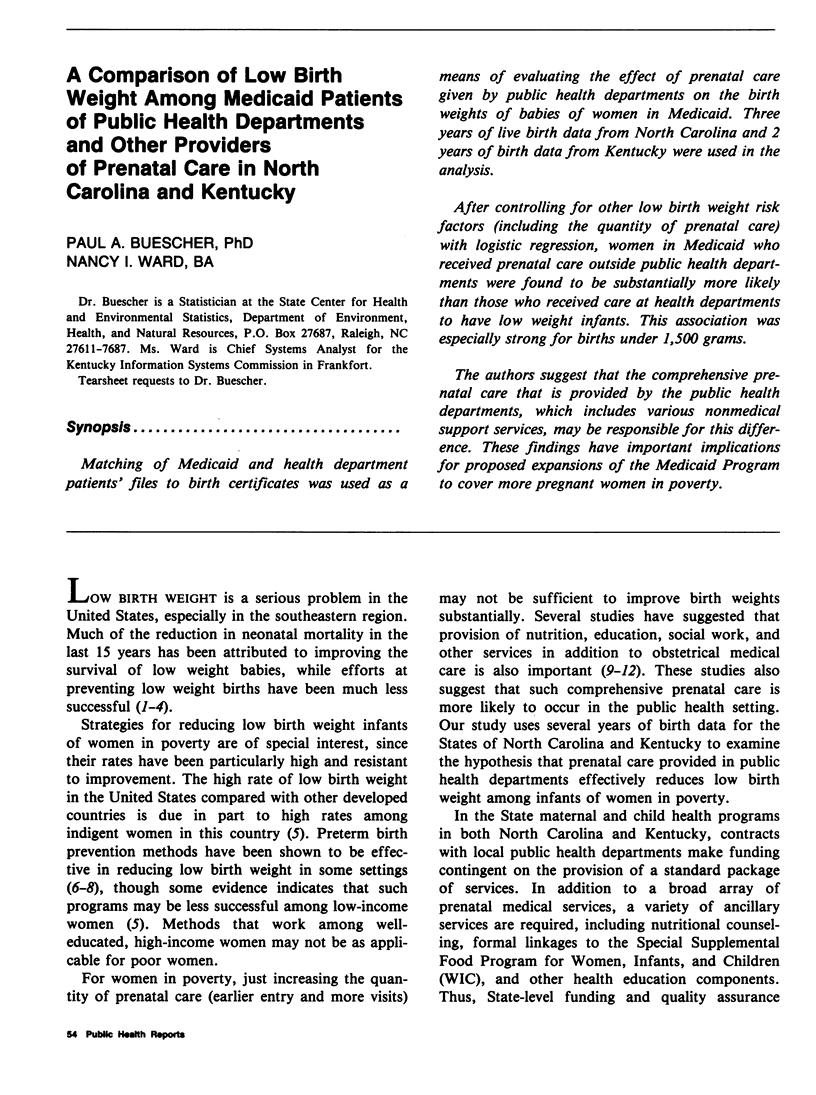
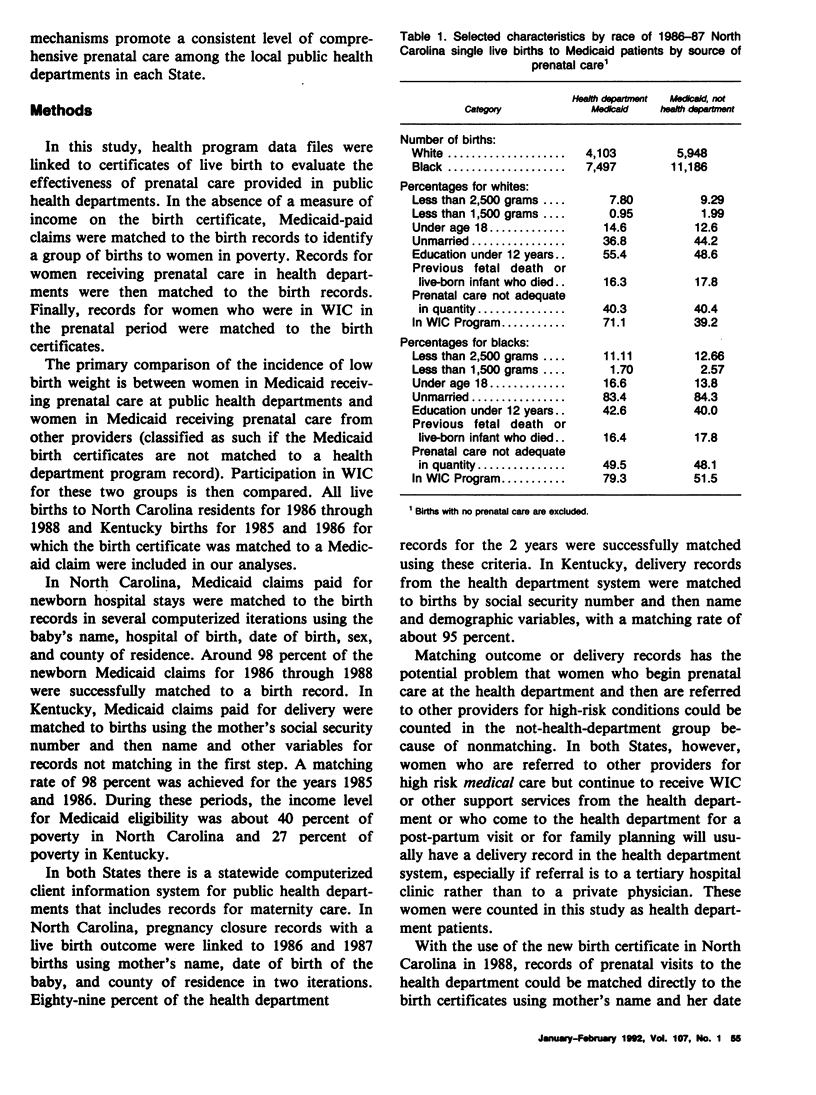
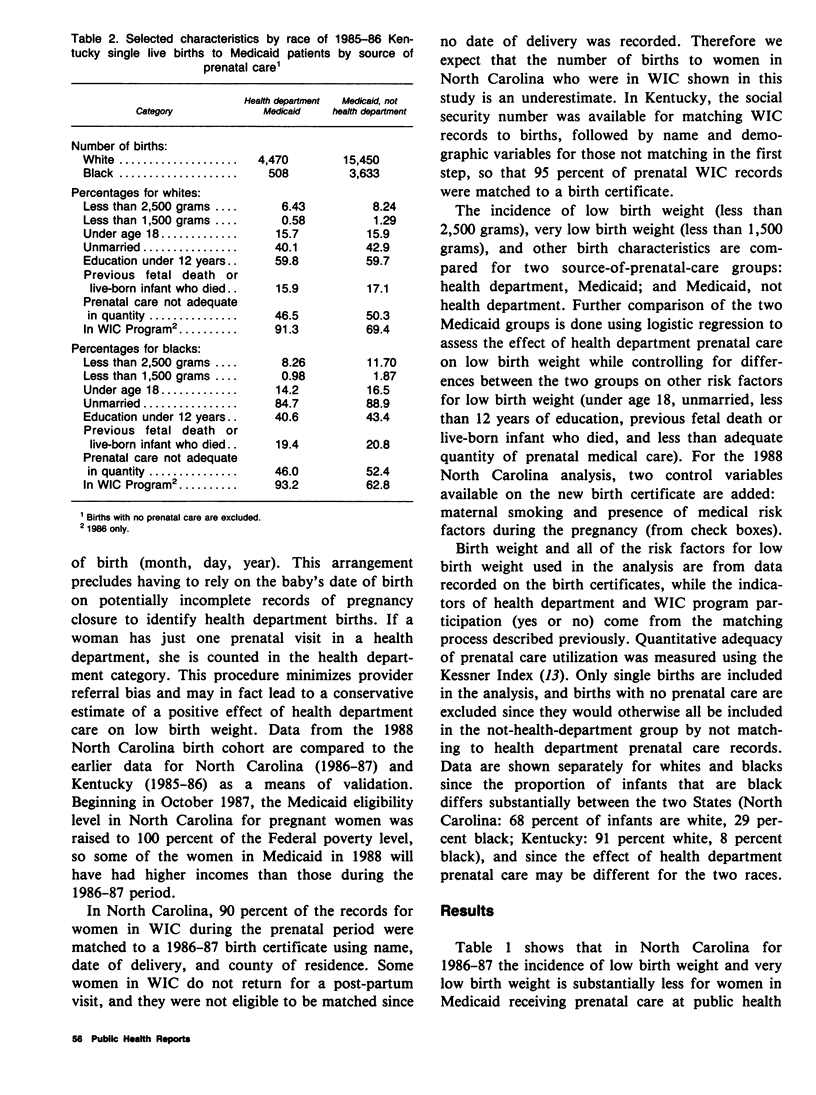
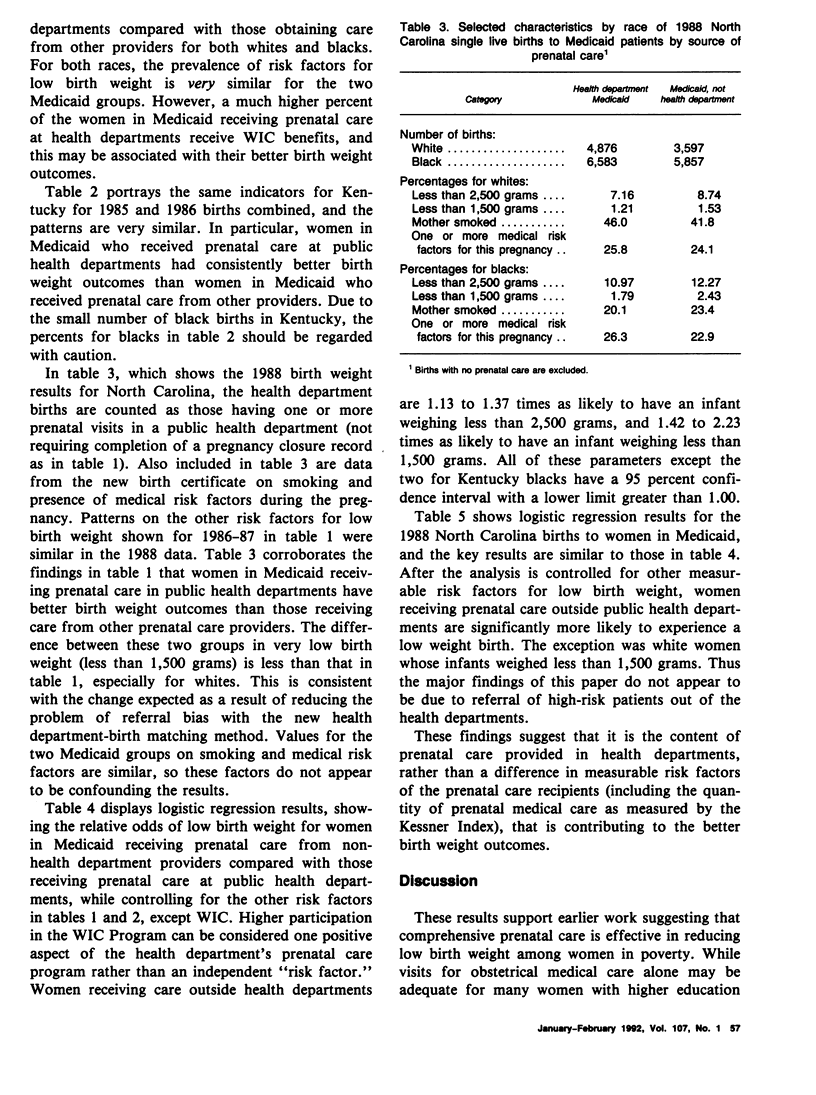
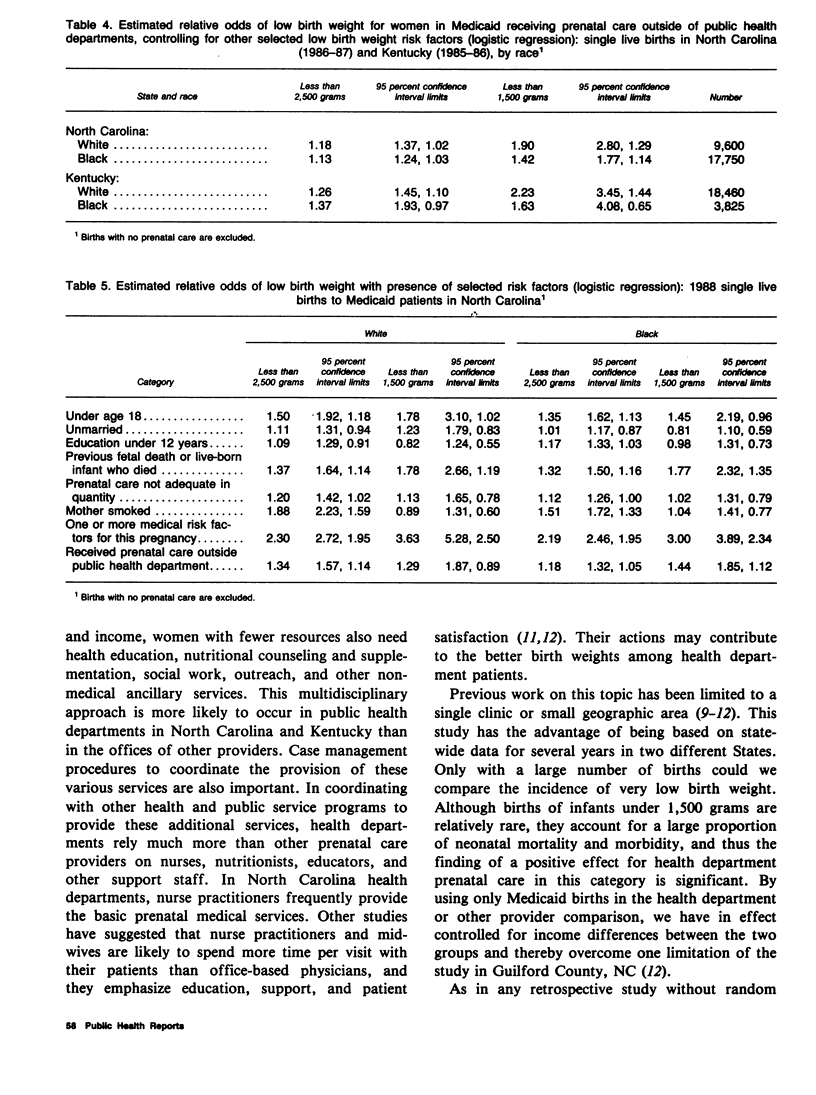
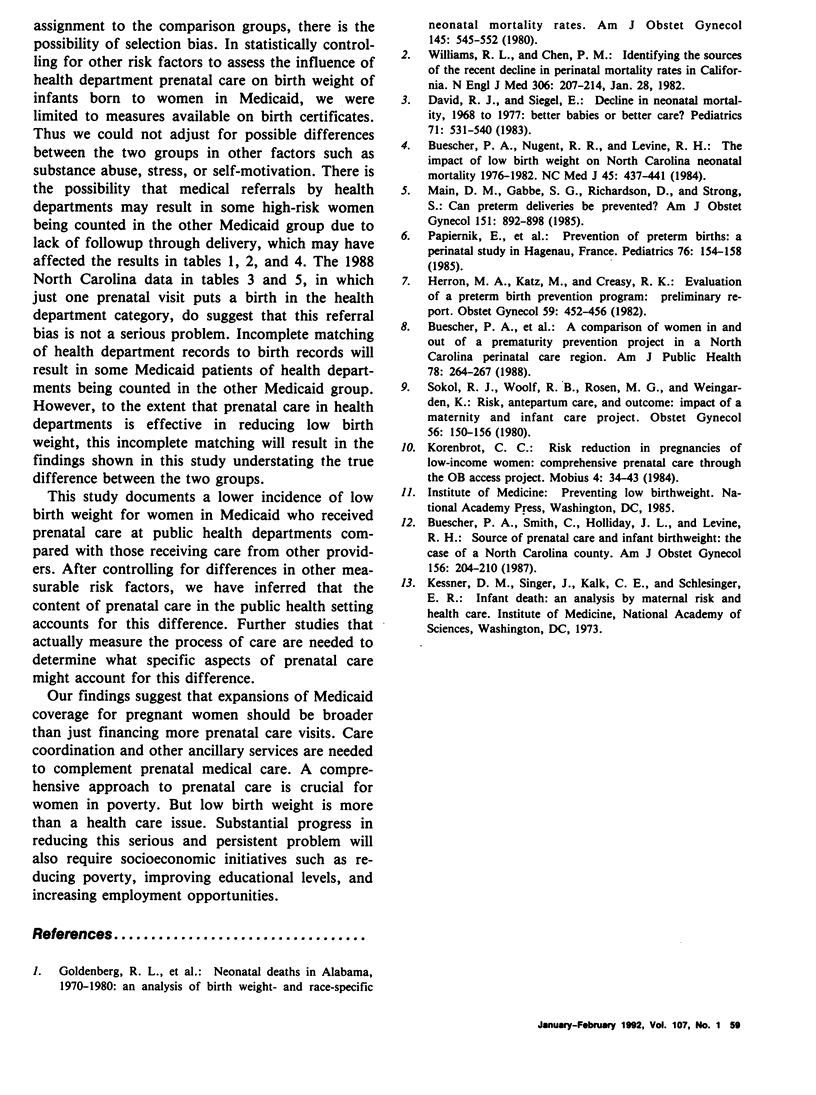
Selected References
These references are in PubMed. This may not be the complete list of references from this article.
- Buescher P. A., Meis P. J., Ernest J. M., Moore M. L., Michielutte R., Sharp P. A comparison of women in and out of a prematurity prevention project in a North Carolina perinatal care region. Am J Public Health. 1988 Mar;78(3):264–267. doi: 10.2105/ajph.78.3.264. [DOI] [PMC free article] [PubMed] [Google Scholar]
- Buescher P. A., Nugent R. R., Levine R. H. The impact of low birth weight on North Carolina neonatal mortality 1976-1982. N C Med J. 1984 Jul;45(7):437–441. [PubMed] [Google Scholar]
- Buescher P. A., Smith C., Holliday J. L., Levine R. H. Source of prenatal care and infant birth weight: the case of a North Carolina county. Am J Obstet Gynecol. 1987 Jan;156(1):204–210. doi: 10.1016/0002-9378(87)90239-0. [DOI] [PubMed] [Google Scholar]
- David R. J., Siegel E. Decline in neonatal mortality, 1968 to 1977: better babies or better care? Pediatrics. 1983 Apr;71(4):531–540. [PubMed] [Google Scholar]
- Goldenberg R. L., Humphrey J. L., Hale C. B., Boyd B. W., Wayne J. B. Neonatal deaths in Alabama, 1970-1980: an analysis of birth weight- and race-specific neonatal mortality rates. Am J Obstet Gynecol. 1983 Mar 1;145(5):545–552. doi: 10.1016/0002-9378(83)91193-6. [DOI] [PubMed] [Google Scholar]
- Henretta C. B., McClellan M. G., Swanson D. B. A needs assessment in continuing professional education. Mobius. 1984 Apr;4(2):34–48. doi: 10.1002/chp.4760040207. [DOI] [PubMed] [Google Scholar]
- Herron M. A., Katz M., Creasy R. K. Evaluation of a preterm birth prevention program: preliminary report. Obstet Gynecol. 1982 Apr;59(4):452–456. [PubMed] [Google Scholar]
- Main D. M., Gabbe S. G., Richardson D., Strong S. Can preterm deliveries be prevented? Am J Obstet Gynecol. 1985 Apr 1;151(7):892–898. doi: 10.1016/0002-9378(85)90667-2. [DOI] [PubMed] [Google Scholar]
- Papiernik E., Bouyer J., Dreyfus J., Collin D., Winisdorffer G., Guegen S., Lecomte M., Lazar P. Prevention of preterm births: a perinatal study in Haguenau, France. Pediatrics. 1985 Aug;76(2):154–158. [PubMed] [Google Scholar]
- Sokol R. J., Woolf R. B., Rosen M. G., Weingarden K. Risk, antepartum care, and outcome: impact of a maternity and infant care project. Obstet Gynecol. 1980 Aug;56(2):150–156. [PubMed] [Google Scholar]
- Williams R. L., Chen P. M. Identifying the sources of the recent decline in perinatal mortality rates in California. N Engl J Med. 1982 Jan 28;306(4):207–214. doi: 10.1056/NEJM198201283060404. [DOI] [PubMed] [Google Scholar]


